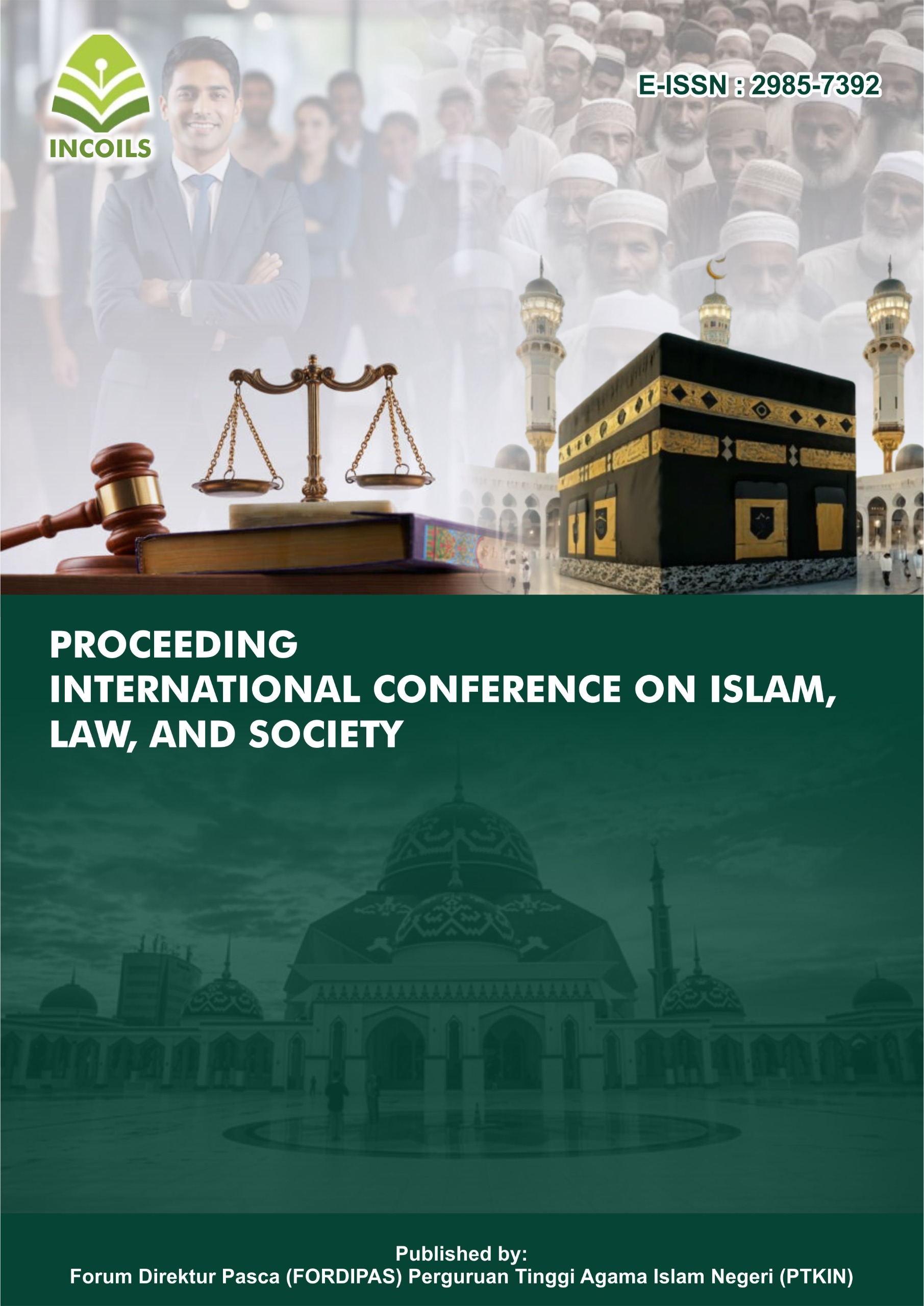ISLAMIC RELIGIOUS EDUCATION CURRICULUM PLANNING AT MADRASAH ALIYAH AL-HIKMAH LANGKAPAN SRENGAT BLITAR
DOI:
https://doi.org/10.70062/incoils.v2i1.179Keywords:
Planning, Factors, Curriculum, Islamic Religious EducationAbstract
The purpose of this research is to find out how the Islamic Religious Education curriculum at MA Al-Hikmah Langkapan, Srengat, Blitar is planned. Qualitative descriptive methods are used to conduct this investigation. Researchers who study Islamic Religious Education Curriculum Planning describe, use, and explain the events they encounter when collecting descriptive data. The conclusion of the study is as follows: first, the preparation of the Islamic Religious Education curriculum begins with an assessment of the previous year's curriculum. The findings of the evaluation will be taken into account when making the upcoming curriculum. Second, several elements that help and hinder the development of the Islamic Religious Education curriculum, with its supporters such as the role of a qualified school principal and a good school program to create good character in children. Meanwhile, teachers who do not have these qualifications will hinder the development of the Islamic education curriculum. Third, seeking to resolve the factors that hinder the planning of the Islamic Religious Education curriculum that has been determined, including routine training for teachers, conducting comparative studies to other schools, conducting solid cooperation with school committees, and good financial management.
References
Abdurrohman, Muhammad Cholid. 2022. "Islamic Education Curriculum Planning", Rayah Al-Islam: Journal of Islamic Sciences, Vol. 6, No. 1; P–ISSN : 1960 –3816; E –ISSN : 2686 –2018.
Al-Syaibany, Omar Mohammad Al-Thomy. 1979. Philosophy of Islamic Education. Jakarta: Bulan Bintang.
Badarudin, Muhammad Afandi. 2011. Learning Planning in Elementary Schools by Including Cultural Education and Character of the Nation. Bandung: Alfabeta.
Basri, Hasan. 2009. Philosophy of Islamic Education. Bandung: Pustaka Setia.
Dakir, H. 2010. Curriculum Planning and Development. Jakarta: Rineka Cipta.
Fachruddin. 2003. Education Administration. Bandung: Cita Pustaka Media.
Fitri, Agus Zaenul. 2013. Islamic Religious Education Curriculum Management. Bandung: Alfabeta.
Hamalik, Oemar. 2006. Curriculum Development. Bandung: PT. Remaja Rosda Karya.
Kurnia, Dian. 2020. "ISLAMIC EDUCATION CURRICULUM PLANNING", AT-TAZAKKI: Journal Islamic Education Curriculum Planning, Vol. 4. No. 2.
Mukni'ah. 2016. Learning Planning According to the Curriculum at the Education Unit Level (KTSP) and the 2013 Curriculum (K-13). Yogyakarta: Pustaka Siswa.
Nizar, Samsul. 2002. Philosophy of Islamic Education. Jakarta: Ciputat Press.
Silitonga, Eva Putri Sari. 2023. "PARADIGM AND CURRICULUM PLANNING", Pediaqu: Journal of Social Education and Humanities, Vol. 2, No.1; P-ISSN:2964-7142; E-ISSN: 2964-6499.
Sudarman. 2019. Curriculum Development for Theoretical and Practical Studies. Samarinda: Mulawarman University Press.
Siskandar, Muhammad Busro. 2017. Curriculum Planning and Development. Yogyakarta: Media Academy.
Downloads
Published
How to Cite
Issue
Section
License

This work is licensed under a Creative Commons Attribution-ShareAlike 4.0 International License.







